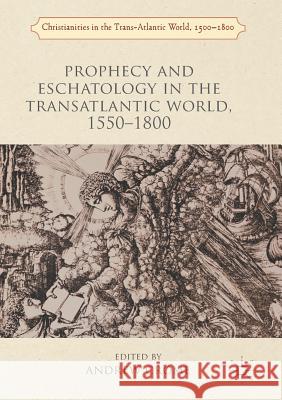Prophecy and Eschatology in the Transatlantic World, 1550-1800 » książka
topmenu
Prophecy and Eschatology in the Transatlantic World, 1550-1800
ISBN-13: 9781349705146 / Angielski / Miękka / 2018 / 302 str.
Kategorie:
Kategorie BISAC:
Wydawca:
Palgrave MacMillan
Seria wydawnicza:
Język:
Angielski
ISBN-13:
9781349705146
Rok wydania:
2018
Wydanie:
2016
Numer serii:
000472093
Ilość stron:
302
Waga:
0.38 kg
Wymiary:
21.01 x 14.81 x 1.7
Oprawa:
Miękka
Wolumenów:
01
Dodatkowe informacje:
Wydanie ilustrowane











